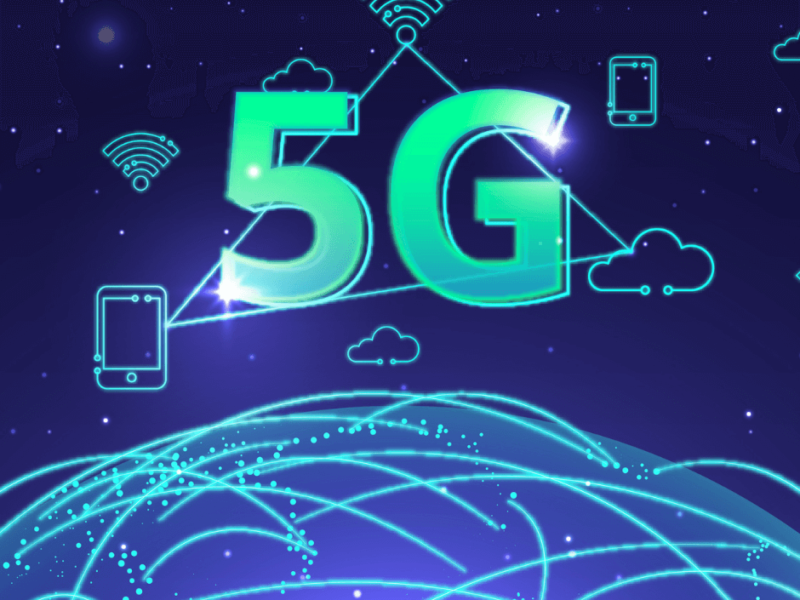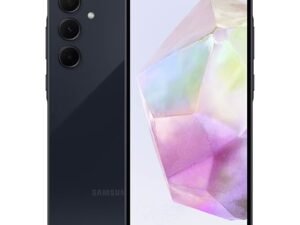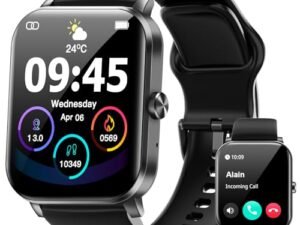5G technology is set to revolutionize the way we communicate with each other. It offers faster speeds. It has lower latency. It provides greater bandwidth. These improvements enable us to do things that were previously impossible.
With 5G, we can download and upload data quickly. We can stream high-quality videos without buffering. We can connect more devices to the internet than ever before.
The communication impact of 5G will span across multiple industries. It will affect healthcare as well as entertainment.
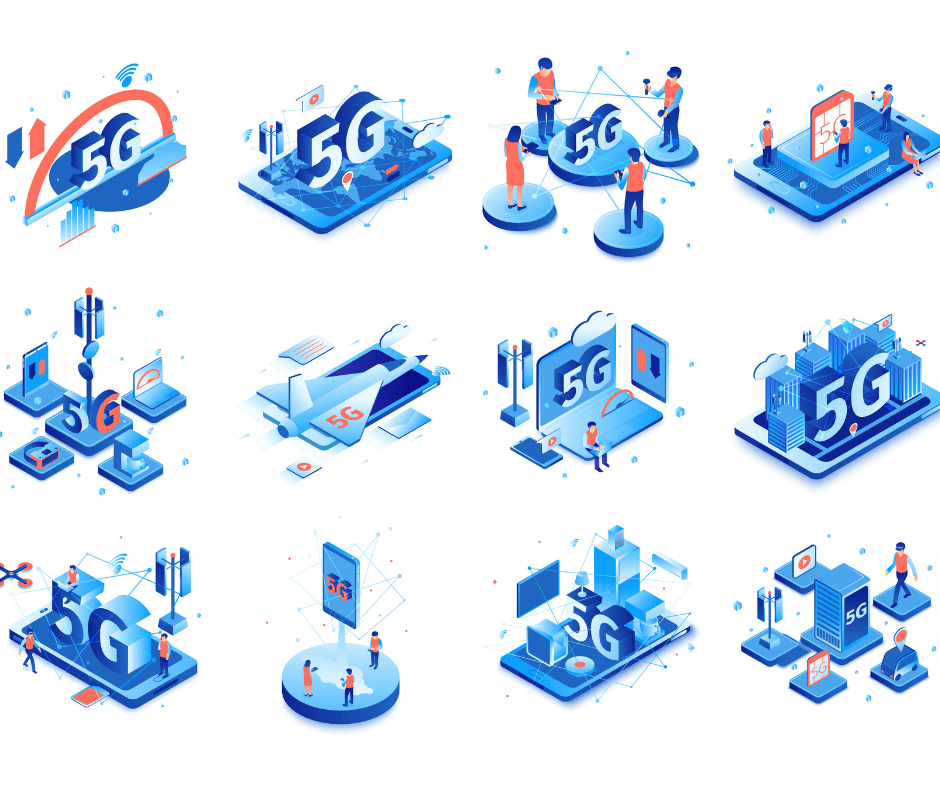
Doctors can use 5G-powered robots for remote surgeries. Gamers can enjoy lag-free virtual reality games.
Businesses will benefit from 5G. They can connect machines and devices to the internet. This allows them to collect and analyze data in real-time.
5G technology will revolutionize communication, work, and daily life. We are excited to see how it will impact the future.
Understanding 5G Technology
As we move towards a more connected world, the demand for faster and more reliable internet connectivity is increasing.
This is where 5G technology comes in. 5G is the fifth generation of wireless technology. It is designed to provide faster and more reliable internet connectivity than its predecessors.
One of the main advantages of 5G technology is its speed. With theoretical peak speeds of up to 20 Gbps, 5G is significantly faster than 4G, which has a peak speed of 1 Gbps.
This means that we can download and stream content much faster than before, making it easier to access and share information on the go.
Another advantage of 5G technology is its low latency. Latency is the time it takes for data to travel from one device to another.
5G technology will have a latency of 1 millisecond, much lower than 4G’s 30-50 millisecond latency.
We can enjoy real-time applications like online gaming without lag. We can also enjoy video conferencing and self-driving cars without delay.
In addition to speed and low latency, 5G technology is also expected to support a larger number of devices than 4G technology.
This is due to the use of higher frequency bands, which can support more data traffic. As a result, we can expect to see more connected devices in the future, from smart homes to smart cities.
Overall, 5G technology has the potential to transform the way we communicate and interact with each other.
The faster speeds will enable us to access information quickly. The low latency will allow us to share information easily. Support for more devices means we can access and share more information.
How 5G Technology Transforms Communication
5G technology is set to revolutionize the way we communicate and interact with each other. 5G will make it possible to connect with people and devices in new ways. It offers faster speeds, lower latency, and greater bandwidth.
Here are some of the ways that 5G technology will transform communication:
1. Faster Speeds
5G networks will be up to 100 times faster than 4G networks, offering speeds of up to 20 Gbps. We can download and upload files in seconds. Streaming high-quality video is buffer-free. Online gaming is seamless.
2. Lower Latency

Latency refers to the time it takes for data to travel from one device to another. 5G networks will have lower latency than previous generations, meaning that we will experience less delay when communicating with others.
This will make video calls and online gaming more responsive and enjoyable.
3. Greater Bandwidth
5G networks will have greater bandwidth than previous generations, meaning that they will be able to support more devices at once. This will enable us to connect more devices to the internet, from smart home devices to autonomous vehicles.
4. Seamless Connectivity
5G networks will enable us to stay connected wherever we go, without experiencing dropouts or slow speeds. This will make it easier for us to work remotely, collaborate with others, and stay in touch with loved ones.
In conclusion, 5G technology will transform the way we communicate and interact with each other. With faster speeds, lower latency, and greater bandwidth, we will be able to connect with people and devices in ways that were previously impossible.
Implications of 5G on Data Speed and Bandwidth
The fifth generation of wireless technology, 5G, is expected to revolutionize the way we communicate and interact with technology.
One of the most significant implications of 5G is the impact on data speed and bandwidth. In this section, we will explore how 5G will revolutionize download and upload speeds and enhance bandwidth capacity.
Revolutionizing Download and Upload Speeds
With 5G, download and upload speeds will be significantly faster than what we currently experience with 4G networks.
According to Forbes, 5G networks can provide download speeds of up to 20 gigabits per second, which is 20 times faster than 4G networks.
This means that we can download and upload large files in seconds, stream high-quality videos without buffering, and enjoy seamless online gaming experiences.
Moreover, 5G networks will provide a more consistent and reliable connection even in areas with high network traffic.
This will be particularly beneficial in crowded areas such as airports, stadiums, and urban centers where network congestion can cause slow download and upload speeds.
Enhanced Bandwidth Capacity
Another significant implication of 5G is the enhanced bandwidth capacity it provides. With 5G, we can expect more devices to be connected to the internet at the same time without experiencing any lag or network congestion.
This means that we can connect more devices to the internet of things (IoT) and enjoy a more seamless and connected experience.
According to Verizon, 5G networks will provide a higher bandwidth capacity of up to 1,000 times more than what we currently have with 4G networks.
This means that we can expect to see more devices such as smart homes, self-driving cars, and remote medical devices connected to the internet and communicating with each other seamlessly.
In conclusion, 5G technology will revolutionize the way we communicate and interact with technology. With faster download and upload speeds and enhanced bandwidth capacity, we can expect a more seamless and connected experience.
5G and Internet of Things (IoT)
As we move towards a more connected world, the Internet of Things (IoT) plays an increasingly important role in our daily lives. With the advent of 5G technology, IoT is set to become even more pervasive and impactful.
Smart Home Devices
One of the key areas where 5G and IoT will intersect is in the realm of smart home devices. With 5G’s faster speeds and lower latency, smart home devices will be able to communicate with each other and with the cloud more quickly and reliably than ever before.
This means that we can expect to see even more sophisticated and powerful smart home devices, from thermostats and security cameras to refrigerators and washing machines.
Autonomous Vehicles
Another area where 5G and IoT will have a major impact is in the field of autonomous vehicles. With 5G’s ability to handle massive amounts of data and provide near-instantaneous communication, autonomous vehicles will be able to communicate with each other and with the cloud in real-time.
This will allow for safer and more efficient transportation, as well as new business models and revenue streams.
Industrial Automation
Finally, 5G and IoT will transform industrial automation. With 5G’s ability to handle large amounts of data and provide low-latency communication, factories and other industrial facilities will be able to operate more efficiently and effectively than ever before.
This will lead to increased productivity, reduced costs, and new opportunities for innovation and growth.
In conclusion, 5G technology will have a profound impact on the Internet of Things, enabling a new generation of smart devices, autonomous vehicles, and industrial automation.
As we move towards a more connected world, 5G and IoT will play an increasingly important role in shaping our future.
Impact on Mobile Networks
5G technology will have a significant impact on mobile networks, revolutionizing the way we communicate with each other. Here are two ways in which 5G technology will transform mobile networks:
Network Slicing
One of the most significant benefits of 5G technology is network slicing. Network slicing allows network operators to divide their network into multiple virtual networks, each with its own unique characteristics and capabilities.
This will enable us to customize our network experience, giving us the ability to choose the services we want and the quality of service we expect.
With network slicing, we can have a dedicated network slice for our gaming needs, one for video streaming, and one for voice calls. This will ensure that we get the best possible experience for each service, without any interruptions or lag.
Edge Computing
Another benefit of 5G technology is edge computing. With edge computing, we can process data closer to the source, reducing latency and improving the overall network performance.
This will be particularly useful for applications that require real-time data processing, such as autonomous vehicles, augmented reality, and virtual reality.
Edge computing will also enable us to reduce the amount of data that needs to be transmitted over the network, reducing network congestion and improving the overall network efficiency.
In conclusion, 5G technology will have a significant impact on mobile networks, enabling us to customize our network experience and improving the overall network performance.
With network slicing and edge computing, we can expect faster, more reliable, and more efficient mobile networks in the near future.
5G and Virtual/Augmented Reality
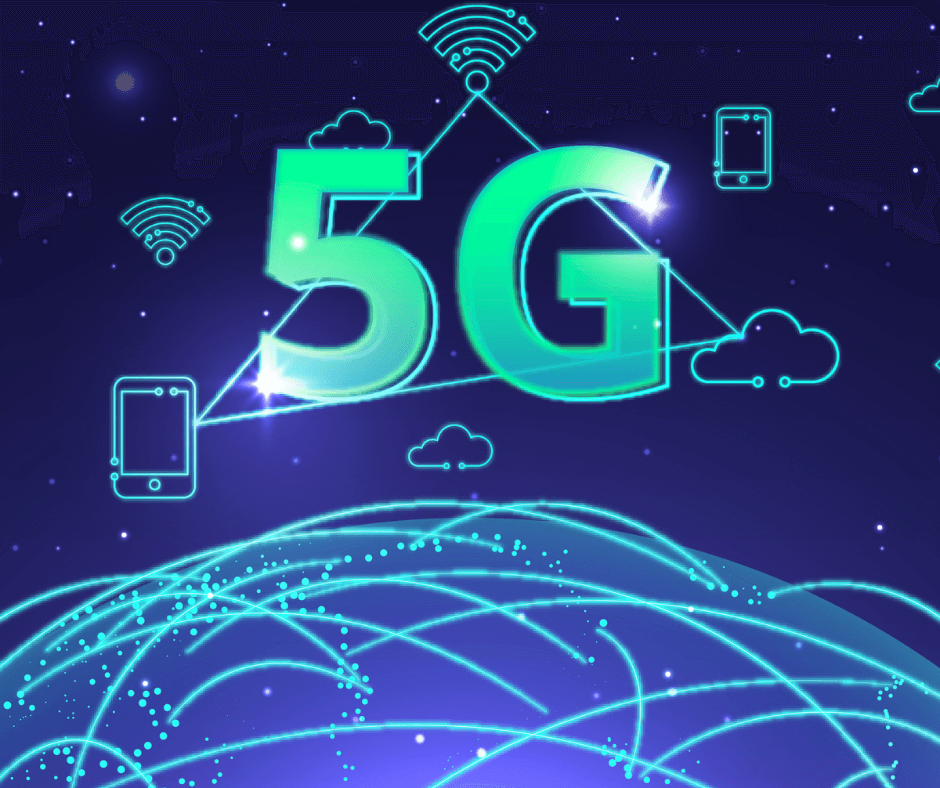
We are on the cusp of a new era of communication, and 5G technology is at the forefront of this revolution.
One of the areas where 5G is set to make a significant impact is in the world of virtual and augmented reality (VR/AR).
With its lightning-fast speeds and ultra-low latency, 5G will enable VR/AR applications to reach their full potential.
We can expect more immersive and realistic experiences. New applications were impossible before due to bandwidth and latency.
One of the key benefits of 5G for VR/AR is the ability to stream high-quality, low-latency video content.
This will allow for more realistic VR/AR experiences. It will also enable real-time remote collaboration and training.
Another area where 5G will have a significant impact is in the development of “smart cities” and the Internet of Things (IoT).
5G enables devices and sensors to communicate in real-time. This makes it possible to create more efficient urban environments.
Overall, we believe that 5G technology will transform the way we communicate and interact with the world around us.
Whether it’s through VR/AR, smart cities, or other emerging applications, 5G is set to revolutionize the way we live, work, and play.
Security Concerns with 5G
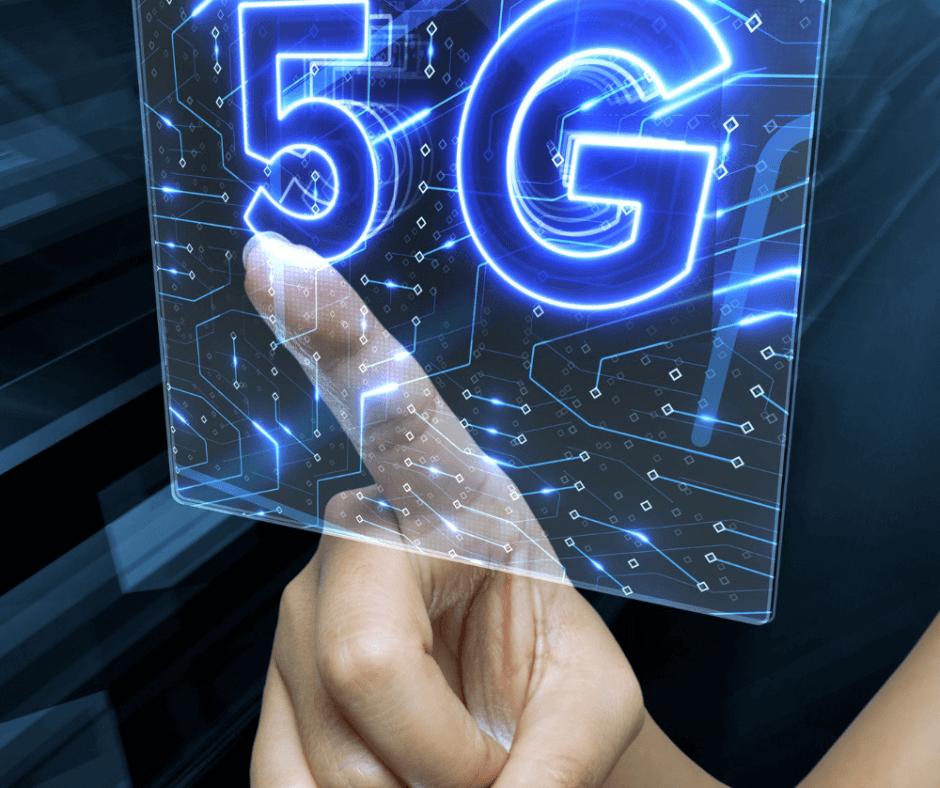
As with any new technology, 5G comes with its own set of security concerns. The concerns arise because 5G networks will be more complex. There will be more devices connected and more data transmitted.
Below are some of the security concerns that need to be addressed as we move towards a 5G world.
Increased Attack Surface
The attack surface will be much larger with 5G. It is larger compared to previous wireless technology generations.
5G networks will support more connected devices, like smartphones and tablets. They will also support IoT devices and autonomous vehicles.
As a result, there will be more entry points for attackers to exploit.
Network Slicing
Another security concern with 5G is network slicing. Network slicing is a technology. It allows creation of multiple virtual networks. These networks are created on a single physical network.
While this technology has many benefits, it also creates new security risks. An attacker gaining access to one slice could access all others.
Encryption
Encryption is a crucial component of any wireless network, and 5G is no exception. There are concerns that 5G network encryption may not be strong enough. It may not protect against sophisticated attacks.
Stronger encryption algorithms need to be developed and implemented as a result.
Supply Chain Security
Finally, there is the issue of supply chain security. 5G networks will use components from various vendors. Many vendors are in unfriendly countries.
This raises concerns about the potential for these components to be compromised. The compromise can occur intentionally or unintentionally. It can be used to launch attacks on the network.
Overall, 5G can revolutionize communication. However, we must address security concerns. This ensures that the benefits of the technology outweigh the risks.
The Future of Communication with 5G
5G technology is set to revolutionize the way we communicate, connect, and share data. 5G networks will bring faster speeds, lower latency, and increased capacity.
This will impact individuals and businesses, ushering in a new era of communication.
Faster Speeds
One of the most significant benefits of 5G technology is faster speeds. With 5G, we can expect speeds up to 100 times faster than current 4G networks.
We can download and upload content at lightning-fast speeds. We can stream high-quality videos without buffering. We can make video calls with crystal-clear quality.
Lower Latency
Another benefit of 5G technology is lower latency. Latency is the time it takes for data to travel from one device to another.
With 5G, we can expect latency to be reduced to just a few milliseconds. Real-time communication and faster response times will enable various applications. These applications include autonomous vehicles, remote surgery, and virtual reality.
Increased Capacity
With 5G, we can also expect increased capacity. More devices can connect to the network simultaneously. The speed and quality of the connection won’t be affected.
In smart cities, thousands of IoT devices will connect to the network. They will give immediate data for managing traffic and monitoring air quality. They will also work for other applications.
In conclusion, 5G technology is set to transform the way we communicate and interact with each other.
Faster speeds, lower latency, and increased capacity will create opportunities. They will bring about a new era of communication and growth.
Frequently Asked Questions
What are the features of 5G technology?
5G technology promises faster data rates, lower latency, and increased capacity. This design supports many devices and sensors, great for IoT. 5G technology also offers improved network reliability and security.
What is the difference between 4G and 5G?
The main difference between 4G and 5G is the speed and latency. 5G is faster than 4G, with the potential to reach speeds of up to 20 Gbps. 5G also has lower latency, meaning there is less delay in transmitting data.
One difference is that 5G technology uses higher frequency bands. This allows for more data transmission over the airwaves.
How fast is a 5G network?
The speed of a 5G network can vary based on factors. These factors include network coverage, device compatibility, and network congestion.
However, 5G technology is designed to offer faster data speeds than 4G. In ideal conditions, 5G networks can offer speeds of up to 20 Gbps.
What spectrum bands can 5G technology use?
5G technology can use a range of spectrum bands, including low-band, mid-band, and high-band.
Low-band spectrum provides broader coverage but slower speeds. High-band spectrum offers faster speeds but limited coverage. Mid-band spectrum offers a balance between coverage and speed.
What are some 5G phones available?
Several 5G phones are on the market: Samsung Galaxy S21 5G, iPhone 13 Pro 5G, Google Pixel 6 Pro 5G, and OnePlus 9 Pro 5G.
How will 5G transform communication in the future?
5G technology will transform communication in several ways. It will enable faster and more reliable communication, which will enhance the user experience.
5G technology will enable new applications and services. These include remote surgery, autonomous vehicles, and smart cities.
It will also enable the Internet of Things (IoT) to reach its full potential, with billions of devices and sensors connected to the internet.

